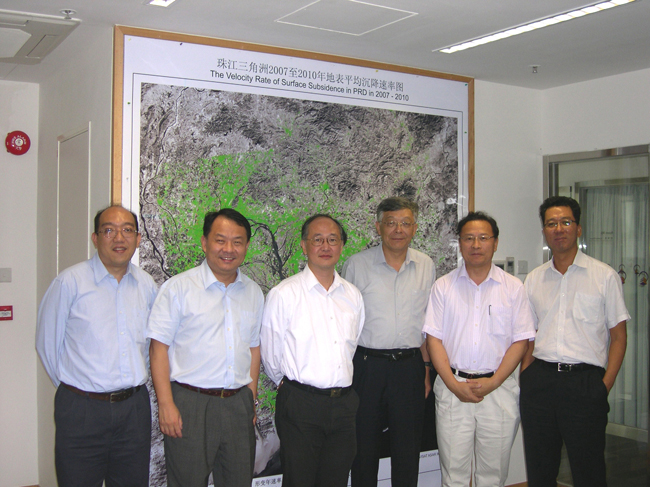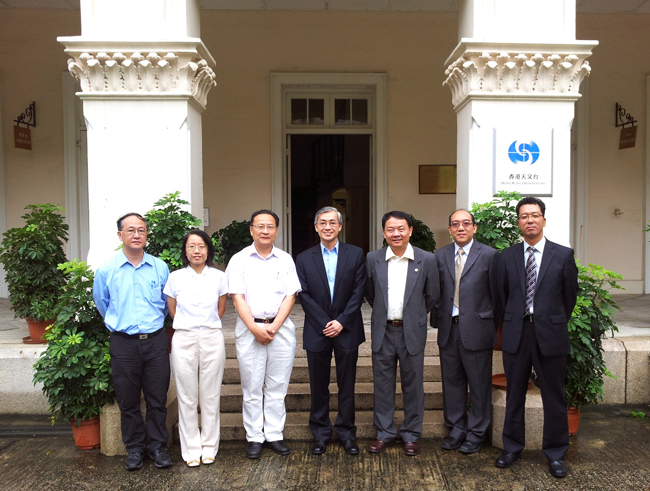Delegation of United Nations Economic and Social Commission for Asia and the Pacific (ESCAP) visited Institute of Space and Earth Information Science (ISEIS) of The Chinese University of Hong Kong (CUHK), and held telephone meeting with other Asia-Pacific countries and regions on regional cooperative mechanisms in space application. Delegates were from mainland China, Hong Kong, Australia, Malaysia, Iran, Pakistan, Korea, Sri Lanka, Thailand and Typhoon Committee Secretariat of World Meteorological Organization of United Nations. Mr. WANG Keran, the Chief of Space Applications Section of ESCAP was the moderator of the meeting.
Discussion was held over regional cooperative mechanisms on disaster monitoring and early warning, especially drought monitoring work during the past two years. Suggestions were made to advise different countries and regions to decide their need, target and competence according to the requirement of space application on Regional Space Applications Programme for Sustainable Development (RESAP) by the Intergovernmental Consultative Committee (ICC).
Decision of starting relevant research was made to find out the current situation and needs of remote sensing and Geographic Information System (GIS) in disaster risk reduction in Asia-Pacific region, for the preparation of the next session of ICC meeting. The delegation also agreed with Space Application Section of ESCAP that Prof. LIN Hui, the director of ISEIS, will preside over the research, and submit the report on the demand for and competence to build remote sensing in disaster monitoring in the Asia-Pacific region to Space Application Section of ESCAP. After the telephone meeting, delegation of ESCAP visited Hong Kong Observatory (HKO).
ESCAP was founded in 1947, which is the most comprehensive regional commission in the Asia-Pacific region. It has a membership of 53 governments including China, the United States of America, Russia, Japan, India, Australia, Singapore, Korea, Thailand, Vietnam, Pakistan; and also 9 associate members including the governments of Hong Kong and Macau Special Administrative Region. The governmental contact organization of remote sensing, GIS and GPS working group under ESCAP in Hong Kong is HKO; while the non-governmental contact organization is ISEIS.
ISEIS is the base of National Remote Sensing Center of China in Hong Kong. Under long-term support from the Ministry of Science and Technology of the People’s Republic of China and the Innovation and Technology Commission of Hong Kong, important earth observation facilities were developed, for instance, the National Satellite Remote Sensing Receiving Station (Hong Kong). It helps creating a unique research and manpower training environment to attract outstanding remote sensing and GIS fellows at home and abroad. With the donation of charities like The Yuen Yuen Institute, 15 master of philosophy from western China like Tibet, Xinjiang, Inner Mongolia, Gansu, Yunnan, Sichuan, Qinghai, Guizhou and Guangxi have been trained by ISEIS in five phases; and have returned successively. Some graduates are now the core members of remote sensing technology in the province, contributing to local earth observation and preservation work.

Prof. LIN Hui (2nd right) welcomes Mr. WANG Keran (2nd left) and the delegation of ESCAP

Delegation of ESCAP visits Mr. SHUN Chi Ming, JP, Director of the HKO